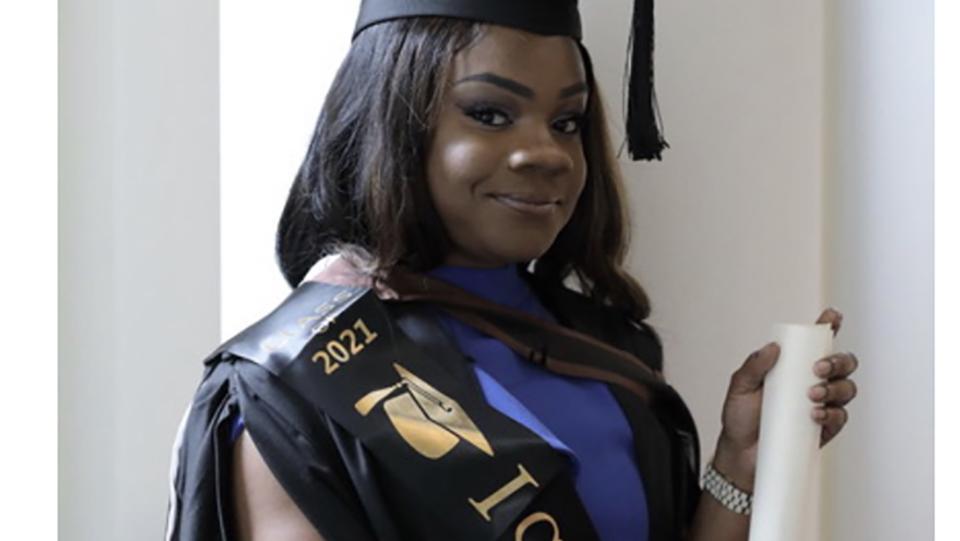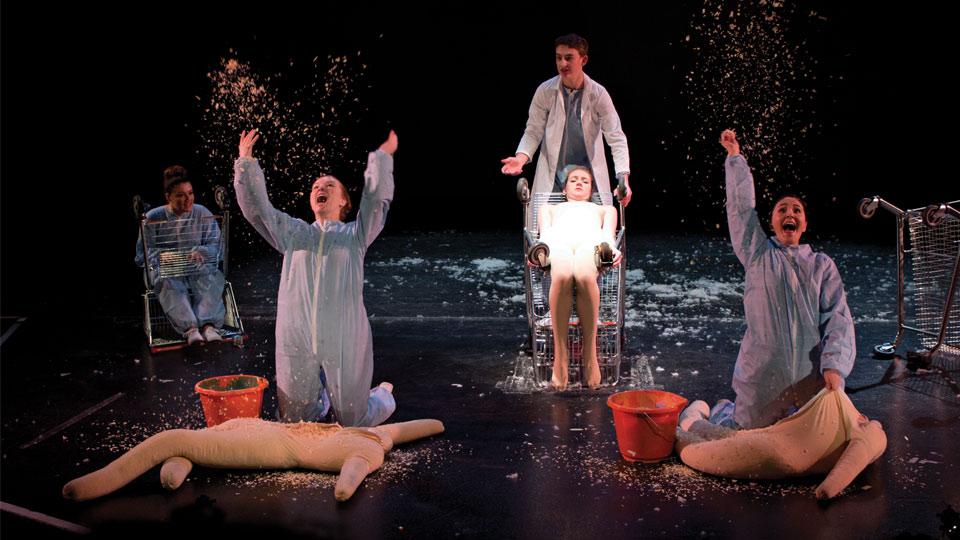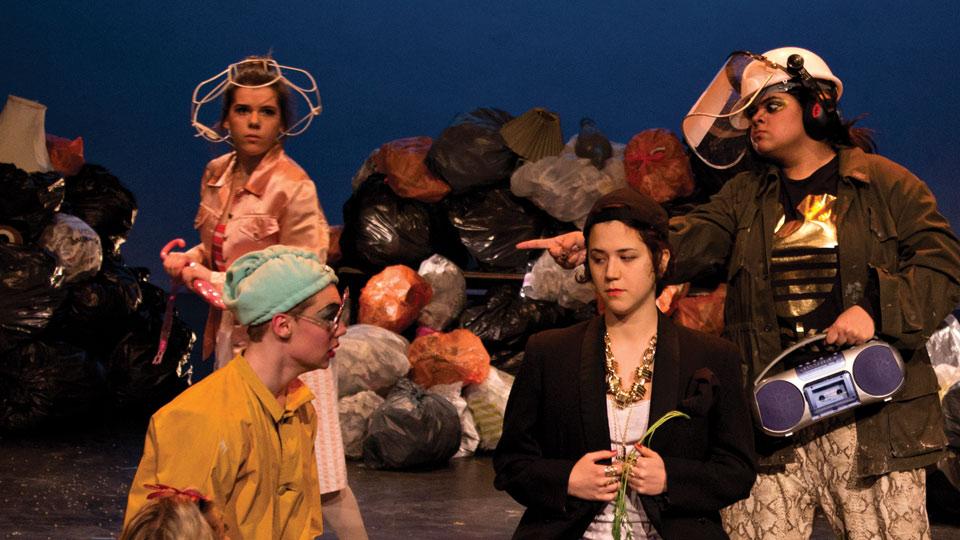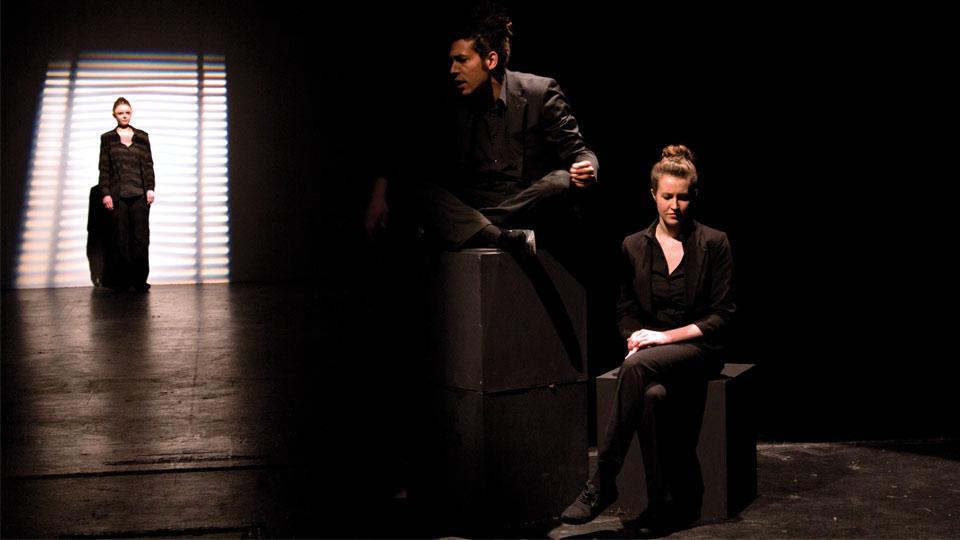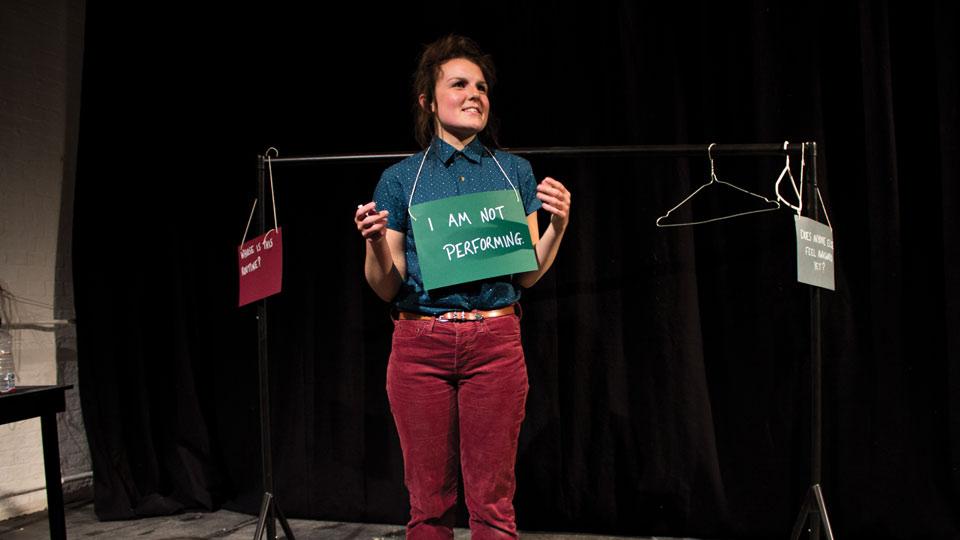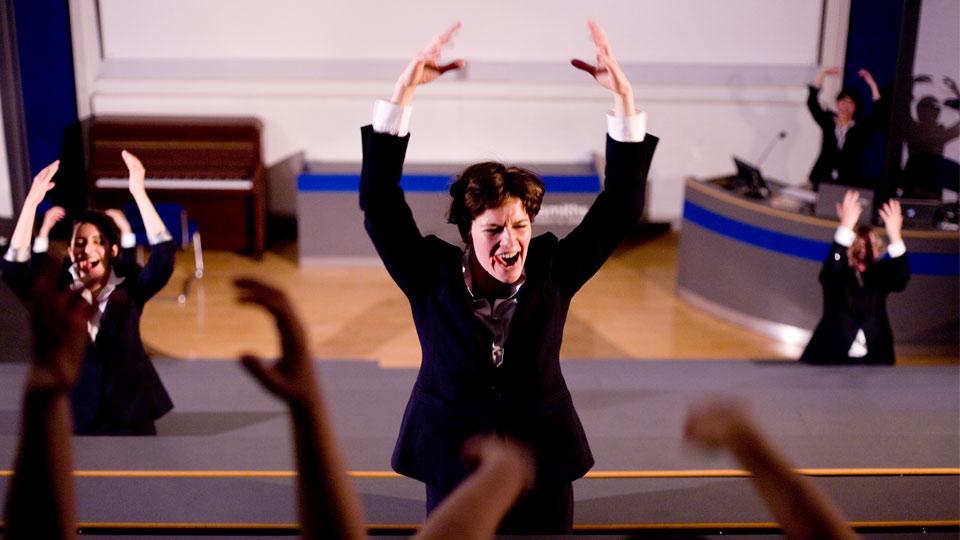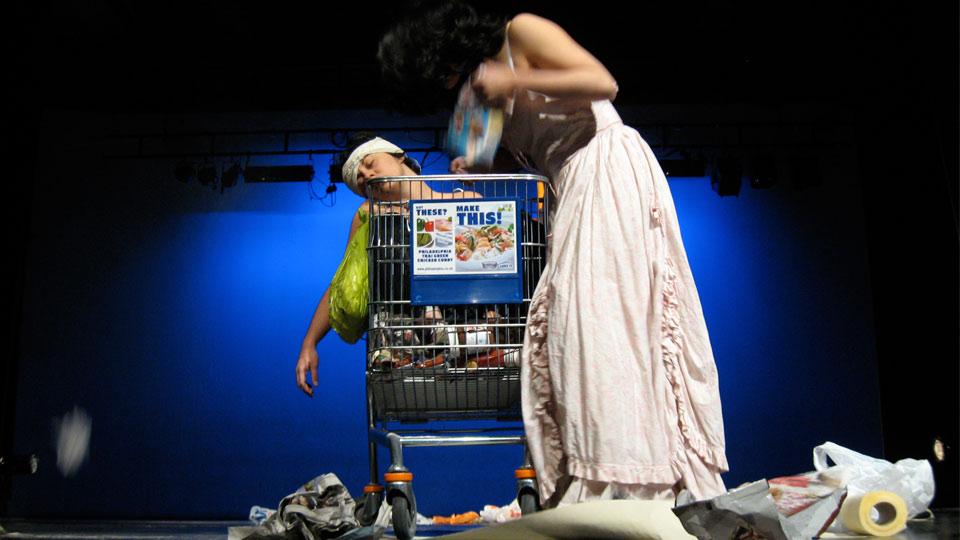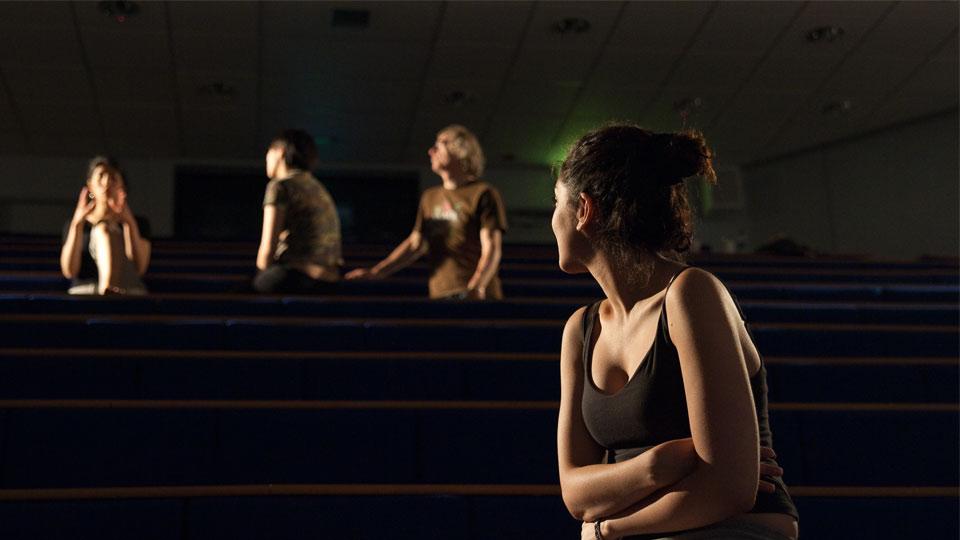Note about optional modules (if available): The below is indicative of the typical modules offered, but is not intended to be construed or relied on as a definitive list of what might be available in any given year. The module content and availability is subject to change.
Overview
You will begin your degree by developing a range of practical, dramaturgical, and critical abilities. In your first year you learn technical and design skills, begin ensemble work together and start to think about what it means to perform and make theatre in today’s world. These skills are brought together in a festival of work in the summer term.
As the degree progresses, students can choose from a wide range of options and are given more independence in building their own creative work. Supported throughout by regular meetings with a personal tutor, you develop specialist knowledge of practical methods and approaches to theatre-making, manage production schedules, company budgets, and theatre design processes, and can make professional connections through work placement.
By your third year, you are able to examine complex ideas in depth, whether as an independent scholar writing a dissertation or as an experimental theatre-maker, working on your final degree productions for a public festival. These final productions often act as a springboard into the professional sector.
Year 1
In the first year you study the following compulsory modules:
| Module title |
Credits |
|
Critical Dialogues A
|
15 credits |
|
Critical Dialogues B
|
15 credits |
|
Introduction to Dramaturgy
|
15 credits |
|
Scenography
|
15 credits |
|
Theatre Making 1
|
30 credits |
|
Processes of Performance: Encounters with Space
|
15 credits |
|
The Ensemble
|
15 credits |
Year 2
In the second year, you take three compulsory modules:
| Module title |
Credits |
|
Theatre Making 2
|
30 credits |
|
Modernisms and Postmodernity A
|
15 credits |
|
The Goldsmiths Elective
|
15 credits |
Global Theatre Histories
You'll also choose 30-credits from the theme of Global Theatre Histories. These modules change from year to year, and recent examples include:
| Module title |
Credits |
|
French Theatre
|
15 credits |
|
African Theatre
|
15 credits |
|
Classical Greek Theatre
|
15 credits |
|
Polish Theatre
|
15 Credits |
|
Shakespeare and the Early Modern
|
15 credits |
|
American Theatre in the Mid 20th Century
|
15 credits |
|
Russian Theatre
|
15 Credits |
|
Post-War British Theatre
|
15 credits |
Questions of Performance
You will also choose 30 credits of optional modules from the theme of Questions of Performance. Module options change from year to year, and recent examples have included:
| Module title |
Credits |
|
QoP: Character I
|
15 Credits |
|
QoP: Self
|
15 Credits |
|
QoP: Gendered Performance
|
15 Credits |
|
QoP: Emotion
|
15 Credits |
|
QoP: Voice/ Text
|
15 Credits |
Year 3
In your final year, you'll take the following compulsory modules:
| Module title |
Credits |
|
Culture and Performance: Critical Cultural Theory
|
15 Credits |
|
Independent Research Project
|
30 credits |
|
Research Methodologies
|
15 credits |
You also choose optional modules across the following themes.
Culture and Performance B
You choose 15 credits of optional modules from the theme of Culture and Performance B. Options change from year to year, and recent examples have included:
| Module title |
Credits |
|
Culture and Performance B: Art and Japan
|
15 Credits |
|
Culture and Performance B: Theatre as a Learning Medium
|
15 Credits |
|
Culture and Performance B: Modern Black, British and American Drama
|
15 Credits |
|
Culture and Performance B: Ecological Theatre
|
15 Credits |
Theatre Making 3
You'll also choose 30 credits of optional modules from the theme of Theatre Making 3. Available modules change from year to year, and recent examples have included:
| Module title |
Credits |
|
TM3: Devised Performance
|
15 Credits |
|
TM3: Live Art/ Performance Art
|
15 Credits |
|
TM3: Acting and Solo Performance
|
15 credits |
Work placement
In your third year, you may also take an optional work placement module
| Module title |
Credits |
|
Work placement
|
15 credits |
Teaching style
This programme is taught through scheduled learning - a mixture of lectures, seminars and workshops. You'll also carry out performance and production work, and will attend lab sessions.
You’ll be expected to undertake a significant amount of independent study. This includes carrying out required and additional reading, preparing topics for discussion, and producing essays or project work.
The programme is a blend of learning between 50% practical and 50% theoretical.
How you’ll be assessed
You will be assessed by a range of methods depending on your module choices. These include coursework assignments such as essays, portfolios, research statements and exams, as well as practical assignments such as practice-based presentations and oral presentations, and in your third year, a 10,000-word dissertation, and participation in a public performance festival.
The following information gives an indication of how you can typically expect to be assessed on each year of this programme*:
Year 1 - 31% coursework, 13% written exam, 56% practical
Year 2 - 55% coursework, 45% practical
Year 3 - 70% coursework, 30% practical
*Please note that these are averages are based on enrolments for 2022/23. Each student’s time in teaching, learning and assessment activities will differ based on individual module choices. Find out more about how this information is calculated.
Credits and levels of learning
An undergraduate honours degree is made up of 360 credits – 120 at Level 4, 120 at Level 5 and 120 at Level 6. If you are a full-time student, you will usually take Level 4 modules in the first year, Level 5 in the second, and Level 6 modules in your final year. A standard module is worth 30 credits. Some programmes also contain 15-credit half modules or can be made up of higher-value parts, such as a dissertation or a Major Project.
Download the programme specification.
Please note that due to staff research commitments not all of these modules may be available every year.
